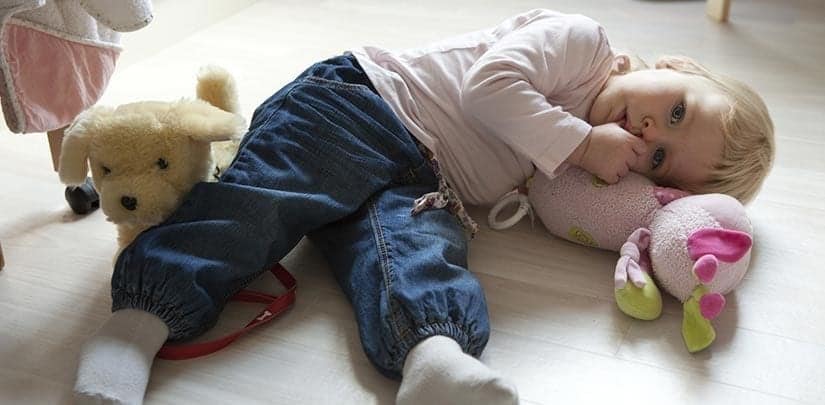As parents, we often wonder if these thumbsucking habits will affect our child’s development.
While it’s completely normal for babies to suck their thumbs, parents should still carefully monitor their child’s teeth development.
Consider these factors and tips from the board certified pediatric dentists at Jenkins & LeBlanc.
When Will My Child Stop Sucking Their Thumb?
Children typically stop sucking their thumb between the ages of two and four years old, or by the time the permanent front teeth are ready to erupt.
However, if your child continues to suck on their fingers or thumbs beyond this age, it might affect the shape of your child’s mouth and teeth.
Effects of Thumbsucking on Baby Teeth
Children who passively rest their thumb in their mouth may be less likely to experience dental issues than those who actively do it.
Prolonged and excessive thumbsucking can affect your child’s growth and teeth development. Some children may develop problems with their baby (primary) teeth, which hold space in the jaws for permanent teeth that are growing under the gums.
Problems that could affect your child’s physical health include:
- Crowded, crooked teeth or overbite issues
- Speech development issues
- Misaligned jaw
- Changes in the structure of the roof of the mouth
If your child sucks their thumb, consider have your pediatric dentist examine the mouth to make sure it’s developing correctly.
Are There Benefits to Thumbsucking?
Thumbsucking or fingersucking is a natural reflex for children and can make them feel secure or soothe them while falling asleep.
Thumbs provide your baby with a built-in way to calm themselves down any time they’re feeling cranky or need comfort. In fact, many babies begin to suck their fingers or thumbs while still in the womb.
What about Using Pacifiers?
Pacifiers can affect the teeth in the same way as thumb and finger sucking, although pacifier use is often an easier habit to break.
Never dip your child’s pacifier in sugar or honey. Avoid cleaning the pacifier in your own mouth because it can pass cavity-causing bacteria to your child.
How Can I Help My Child Stop Sucking Their Thumb?
Different techniques work for different children, but here are some easy ways to help you child stop sucking their thumb.
- Children often suck their thumb for comfort or when they are feeling insecure or anxious. Focus on addressing the cause of their anxiety and provide alternative comfort.
- Praise your child when not thumbsucking. Create a chart and reward them for a change in behavior.
- If your child sucks their thumb when they are tired, comfort them with an alternate security item.
- You can also try reminding them of their habit by bandaging the thumb or putting a sock or glove on their hand at night.
- Consider a baby thumb guard.
Have Questions?
For more information about developing your child’s healthy smile, browse our pediatric dentist blog.
We explore a variety of topics about your child’s oral health, including cavities, teething tips, and baby bottle tooth decay.
If you have any questions about thumbsucking or your child’s dental health, our dentists at Jenkins & LeBlanc are here to help. We can examine your child’s mouth and help explain how thumbsucking may affect their teeth development.
